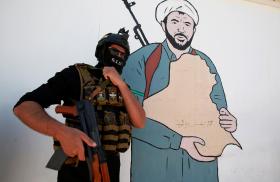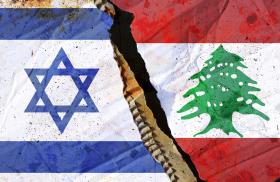
- Policy Analysis
- Interviews and Presentations
Discussing Turkey's Latest Foreign Policy Challenges

Reza Akhlaghi interviews Dr. Cagaptay about the crisis in Iraq, the state of U.S.-Turkish relations, Ankara's policy toward Syria, and more.
In early June Turkish Foreign Ministry Undersecretary Feridun Sinirlioglu visited Washington to discuss bilateral and regional issues. Are U.S.-Turkish relations on the path to recovery from their recent lows?
Between 2010 and 2013, U.S.-Turkish ties enjoyed a spectacular spring. President Obama and Turkish leader Erdogan spoke often, at least a dozen times in 2011 alone. At that time Turkey and the U.S. had overlapping views of the Arab Spring. The two countries worked closely together in Libya, Egypt and Tunisia.
Lately, however, that has not been the case. Erdogan split with Obama over Egypt policy when Morsi was ousted and did not recognize the new Sisi administration in Egypt. Ankara and Washington have diverged also on Syria when Turkey threw its support behind the Muslim Brotherhood there, with no success. The morphing of the Arab Spring into Arab Winter has bookended many of Turkey's regional aspirations. Turkey's Syria policy has failed; Turkish-Iraqi ties are rocky over Turkey's courting of the Kurdistan Region of Iraq; and Turkish-Egyptian ties are in the freezer since Sisi refuses to deal with Erdogan.
Likewise, the Saudis are angry at Turkey's support for the Muslim Brotherhood in Egypt. This leaves Turkey with no regional allies but the Kurds with whom Ankara has built deep economic and political ties in the last five years. The Iraqi Kurds are now selling their oil through Turkey, bypassing Baghdad. The emergence of the Islamic State of Iraq and Syria (ISIS) in Iraq will bind Turkey and the Kurds in Iraq even closer, adding a security layer to the relationship. Turkey could build a relationship with the Syrian Kurds.
In the new Middle East, Turkey is isolated. This is one reason Ankara wants to normalize ties with Israel; another reason for normalizing ties with Israel is that Turkey wants to buy Israeli gas to decrease its energy dependency on Russia and Iran -- based on the same rationale, Ankara is now buying Kurdish oil.
With the changing regional picture, Ankara realizes that it needs the U.S. and especially NATO to guard itself against ISIS and ring of isolation forming around Turkey. This does not suggest that U.S.-Turkish relationship will go back to the 2010-13 period when there was close rapport between Obama and Erdogan. The White House's views of Erdogan have soured due to Turkey's stance on Egypt and Syria, and also because of the way the Turkish leader has been cracking down on the opposition and meddling in people's freedoms. Still, the United States needs Turkey in Syria and Iraq, and Turkey needs U.S. weapons and intelligence. This suggests a transactional relationship, driven not by empathy between leaders, but a cold calculus of give-and-take on the Middle East.
How do you think Turkish interests are impacted by the current security crisis in Iraq? Does Erdogan's government regard the situation as a desired strategic blow to Iranian interests in Iraq, or as a security threat that also impacts Turkish interests?
The takeover of Mosul by ISIS has cemented the rapprochement between Turkey and the region's Kurds, casting them as best friends in the increasingly unstable Middle East. The relationship has improved so much that if the Kurds in Iraq were to declare independence, Turkey would be the first country to recognize Kurdistan. Ankara and the Kurds have indeed come a long way. Only until a few years ago, Turkey and the Kurds despised each other. Ankara could not stomach the idea of Kurdish self-governance, and the Kurds wanted Turkey to stay out of their business.
ISIS's advances in Syria and Iraq and attack on the Turkish consulate in Mosul on June 11, where the group took Turkish diplomats and security officials hostage, offers further rationale to deepen Turkish-Kurdish ties by adding a security component to the relationship.
At the same time, Turkey will watch Iran-U.S. nuclear talks with the deterioration of the situation in Iraq at the back of its mind. Earlier this year, Turkey opened its own channels to Iran in anticipation of, and also fearing, a U.S.-Iran deal. This suggests that Turkey will pursue closer dialogue with Iran also on the Iraqi and Syrian issues. The new Turkey will deal with Iran and the U.S. simultaneously, trying to buy security and cooperation from both.
Where does the Kurdish autonomous region in northern Iraq fit in this picture, and could the Kurds in Iraq cooperate with Ankara against ISIS? Does the export of Kurdish oil by Turkey suggest that Ankara has warmed up toward an Iraq partitioned into three separate entities?
Turkish ties with Iraqi Kurds have improved beyond recognition. Post-Iraq War, the Kurds pivoted towards Ankara in order to counter the re-emergence of Arab domination of Iraq. Turkey reciprocated, sending merchants, airlines, and consumer goods into Iraqi Kurdistan. The Kurds now opt to sell their oil through Turkey, bypassing Baghdad and giving Ankara a huge gift.
The ISIS threat has even led Ankara to acquiesce to Kurdish control of Kirkuk, an oil-rich city in northern Iraq, a development that could eventually lead to Kurdish independence. Turkey had previously threatened the Kurds with military action should they occupy Kirkuk, yet on June 12 when the Kurdish forces moved to occupy Kirkuk, Ankara did not utter a word. In today's Middle East, ISIS is a bigger threat to the Turks than Kurdish independence in Iraq.
Do you expect Turkish-Iranian relations to be further strengthened under the presidency of Hassan Rouhani? What are the likely obstacles to further political and economic cooperation between the two countries?
Turkey will court Iran. This is since Ankara feels that it could be left out in the cold should there be a U.S.-Iran nuclear and regional deal. At the same time, though, Turkey is woefully aware of its energy dependency on Tehran (and Moscow). The country gets three-fourths of its natural gas and oil from Iran (and Russia). So, the Turks will talk to the Iranians on regional issues, such as ISIS and Syria, hoping to cut their own deals should the U.S. reach a modus vivendi with Iran. At the same time, Ankara will try to become less dependent on Iran on energy matters. The war in Syria has been a wakeup call for the Turks: Turkish-Iranian interests in the Middle East do not overlap, and the Iranians can upstage the Turks. So, Turkey knows that it is dancing on thin ice when dealing with the Iranians.
With the reaction of Erdogan and his government to the revelations of corruption scandals involving high-ranking AKP officials, is Fethullah Gulen still a force to be reckoned with in Turkish politics?
When Erdogan and the Gulen movement split in December 2013, the question was what impact this would have on Erdogan's electoral split. The peeling off of Gulenist votes from the AKP made an impact in some provinces, such as Erzurum, Gulen's birth place, where the AKP votes dropped precipitously. But the split did not cost Erdogan's party the national race. The battle between Erdogan and Gulen still continues.
What is the Turkish foreign policy line on Syria? What policy changes have you seen by Ankara vis-a-vis Damascus over the last twelve months?
When the Syrian uprising began in 2011, Turkey allowed anyone, including the jihadists, to cross into Syria to fight Assad. Presuming that "Assad will fall and good guys will take over," Turkey opened its doors to all fighters hoping to hasten Assad's demise.
Three years later, it has become abundantly clear that while Assad is not yet falling, good guys are not taking over, and abetting the radical Syrian opposition was a huge mistake. ISIS's takeover of Mosul and attack on the Turkish diplomatic post signal that the group has become emboldened enough in Syria to target Iraq and, more importantly, Turkey. Turkey has had a rude wake-up call from ISIS: the bad guys are spreading from Syria into the region and they are also targeting Turkey.
Once it secures the release of Turkish diplomats, security officials, and truck drivers who have been taken hostage by ISIS in Iraq, Turkey could take aggressive action against ISIS' presence in Iraq. However, the Turks may be concluding that it is too late for them to respond to the ISIS presence inside Syria, unless the United States leads a massive campaign against that group in the region -- an unlikely scenario.
With Turkish presidential elections less than two months away, how could events in Iraq and Syria impact Erdogan's fortunes at the polls?
Erdogan's party won only around 45 percent of the vote in nationwide polls for local government on March 30. The Turkish leader wants to be elected as the country's next president in the August elections. To this end, Erdogan needs to build further popularity. He also needs to make sure that developments in Iraq and Syria do not hurt his vote-grabbing strongman image. Incidents such as the current hostage crisis in Mosul, where ISIS has kidnapped Turkish diplomats and security officials and their families, including babies, or terror attacks by ISIS against Turkey could hurt Erdogan's image at home.
Soner Cagaptay is the Beyer Family Fellow and director of the Turkish Research Program at The Washington Institute, and author of The Rise of Turkey: The Twenty-First Century's First Muslim Power (Potomac Books).
Foreign Policy Association


